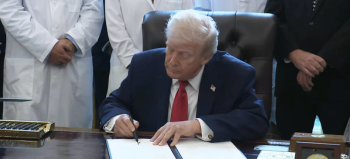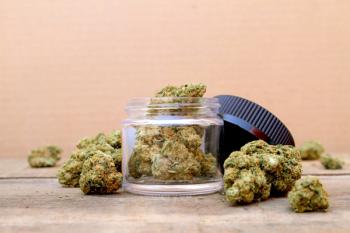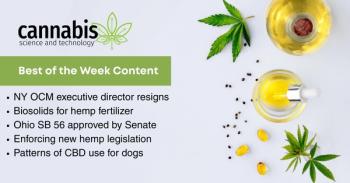
Why cGMP Certification Matters in the Cannabis Industry
What are current good manufacturing practices (cGMP) certification and why get it? It takes a lot of time, it’s hard work, and can be expensive to become cGMP certified, so why be interested in something that isn’t yet required?
Cannabis companies are consistently under-regulated when it comes to health and safety, so many companies have been taking this part of their business into their own hands to produce consistent and safe products and to later be able to function under federal guideline. One of the ways companies are doing this is to become current good manufacturing practices (cGMP) certified. Even though to me and to some others this is an obvious, good thing to do, people still ask me, “what is cGMP certification and why should I get it?” It takes a lot of time, it’s hard work, and can be expensive to become cGMP certified, so why should we even be interested in going through all the heartache for something that isn’t yet required?
There are many reasons that receiving a cGMP accredited certification can benefit your cannabis company, and I decided to write the blog this month about those reasons. Here, I will explain those reasons and then concisely outline the steps of becoming certified. If this is something in your 2022 goals for your company, hopefully it will get you in the mindset and give you an idea of what to expect.
Current good manufacturing practices (cGMPs) are a set of standards that were created by the US Food and Drug Administration (FDA) under the authority of the Federal Food, Drug, and Cosmetic Act. The standards cover manufacturers of food, dietary supplements, cosmetics, medical devices, and prescription drugs. cGMP requires a systematic quality approach to manufacturing, including the development and implementation of procedures and documentation for the design, monitoring, and control of all manufacturing processes. cGMP certification is specific to the facility, which means each production facility will need their own certification. This quality management system helps to ensure products are made consistently and reliably to product specifications for identity, strength, quality, and purity.Not only does cGMP help businesses prevent hazards such as contamination or errors, but it also ensures that products are safe for consumers every time. Most large retailers (such as Walmart, CVS, and so forth) require this certification prior to selling products.
Positive brand recognition is always a good thing when producing products.This is probably the number one reason why potential clients call me wanting the cGMP certification in the first place. They want to be able to brand their products as cGMP certified, and many other cannabis or hemp companies won’t buy or sell products that weren’t made in a cGMP certified facility. This is the trend and the way I see it; it will continue to be in the industry from now on.Consumers are far more likely to buy a product that they know is safe and held to a standard that has been audited. Being able to put on your branding, website, and product stands that you are a cGMP certified company makes a lot of difference when it comes to consumers and ingredient buyers. It also lets consumers know that you aren’t just in this to make money, but you care about the people who are using your products. It helps consumers trust your brand and want to continue buying it, and that’s the goal, right? Especially right now when there are oh so many brands that obviously are in it just for the money grab and seem not to care. Doing this will set your company apart from the others.
Product safety when it comes to cGMP certification is one of the key factors. cGMP requirements are based on current FDA regulations and revolve around making your product as safe as possible for human consumption. This is not only showing consumers that you care about them, but it is also a huge risk mitigator when it comes to liability and regulatory fines. Not only that, but it seriously reduces the likelihood that you will have to go through a recall or dispose of products due to a contamination oversite. Announcing to the world that you messed up and potentially (or actually) harmed some of your customers is a huge black eye on not only your brand, but the industry as a whole. Having good food safety practices in place can make or break a company. Don’t be the last company to be up to par with food safety–you may very soon regret it.
Worker safety, or Occupational Safety and Health Administration (OSHA) regulations, is very important and most people aren’t thinking about them yet, but you should be implementing them now if you can. cGMP certification is one way to get a start toward being OSHA compliant. All cGMP requirements from an accredited certifying body have requirements for documentation, training, and logs of some (but not all) OSHA standards. I would say that 90% of the companies in the cannabis industry that I consult with have no OSHA documentation in place in their facility other than the informative poster on the wall. The documentation that cGMP requires is also required by OSHA, and is the perfect place to start on the path to having complete worker safety compliance. Many of our clients will finish up their cGMP certification and then have Allay Consulting finish out all their OSHA required documentation and training as well. Once companies have a couple OSHA items in place, I think company leaders see how important it is to protect their employees and decide it’s a good idea to become fully complaint. Also, OSHA is one of the highest fining departments in the US and if there is a complaint, they have jurisdiction to investigate in all cannabis facilities, so having anything in place will help lower those fines if a visit does happen.
Media opportunities are a paramount way to show how your company shines. Press releases and articles about the company usually happen when you have something to talk about. This is a great opportunity to brag about your accomplishments and you deserve to! Becoming cGMP certified or having any other accredited certification for health and safety is not easy. You should be posting the certification on the website, getting articles in media outlets, doing podcasts, and obviously putting out a press release. These tactics have greatly helped other companies we have worked with after certification is received. You should have pride in your company’s accomplishments, and when you actually have an accomplishment like this you should be talking about it.
Most of our clients are on a long-term certification path that consists of first receiving cGMP certification, then International Organization for Standardization (ISO) 9001, and then ISO 22000. This will be the way of the world. The longer hemp and cannabis are on the market, the more these kinds of regulations and certifications will be required. Eventually all will be federally legalized, and not only will you be dealing with all state and local regulatory factions, but that will all be topped by the FDA and OSHA as well. Receiving these certifications will make the federalization transition practically painless, because most of what is required by the FDA will be already addressed and implemented in your facilities. Companies that aren’t thinking about the big picture, and aren’t even thinking about becoming compliant with these standards, eventually will be paying the price. The reason we set our clients on this path is because there is evidence that ISO 22000 will be required for international commerce to most other countries, much the same as many wholesale foods. The Canadian government is even thinking about requiring all their cannabis facilities to be compliant to this standard, and that ideal will probably spread to other countries, including the US. Without these certifications, you will seriously be limiting your future growth potential. Our goal is to help our clients be as successful as possible. Being compliant and getting certified is a cornerstone of success in this industry. Someday storefronts and ingredient buyers won’t even work with you without these kinds of safety assurances in place. Anyone who is falling behind won’t be around long enough to make their mark.
Becoming cGMP certified can be a long and tedious process that doesn’t happen overnight, and the regulations for each certifying body are different and must be followed perfectly in all documentation and training requirements. There are many reasons why getting cGMP certified in the cannabis or hemp industry is a smart thing to do. Becoming compliant with federal regulations such as the FDA and OSHA can save you hardships and money. Receiving brand recognition for a job well done and for going above and beyond is always a good thing, and all of the outgoing media can only help you find new consumers for your brands. The true take away I want to leave you with is simple: If you want to build a quality brand that is going to last longer than a few more measly years, then you will need this. The industry is changing, and people want products they know are safe and consistent. This is the way you prove that.
About the Author
Kim Stuck is the CEO and founder of Allay Consulting. Direct correspondence to:
Newsletter
Unlock the latest breakthroughs in cannabis science—subscribe now to get expert insights, research, and industry updates delivered to your inbox.




